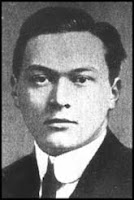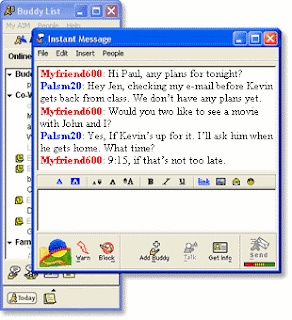
"Each night Pecola prayed for blue eyes. In her eleven years, no one had ever noticed Pecola. But with blue eyes, she thought, everything would be different. She would be so pretty that her parents would stop fighting. Her father would stop drinking. Her brother would stop running away. If only she could be beautiful. If only people would look at her."
Have you ever wished that you looked like someone else? Have you ever been made fun of or felt insecure? If so I suggest that you check out
The Bluest Eye written by Toni Morrison. This compelling novel tells the story of a young girl who felt just that and the hardships that she faced. It will take you on a journey through all kinds of emotions. I couldn’t put the book down until I had finished it. This book is widely recognized as being a member of Oprah’s Book Club.
The Bluest Eye also won the Nobel Prize in Literature, which Toni Morrison was the eighth woman and the first African American to win. Toni Morrison attended Howard University, obtained her master’s from Cornell University, and was awarded an honorary Doctor of Letters degree from Oxford University. Morrison has written many novels as well as children’s book. All of her novels portray African American characters and the issues they face in everyday life. I feel that Morrison is able to authentically portray these issues because she herself is African American. I know that if I tried to write a novel like this I would not be able to portray the issues and realities that are faced, because I have never actually faced or encountered them in my life being a white woman.
The Bluest Eye is a fictional novel that takes place in the small town of Lorain, Ohio where Morrison was born. Pecola Breedlove, an 11 year old African American girl, is the main character. Pecola’s story is told by others to keep her mysterious. Pecola is often picked on and made fun of at school for being ugly. She prays and wishes every day that her eyes will turn blue

so that she can be as pretty as the blond, blue-eyed white girls. Although Pecola prayed for change, the change that occurs is very painful and devastating, not uplifting as she thinks she will feel with blue eyes. Pecola goes through many trials and hard times throughout the novel. At times, the hardships she faces are so tough, that I thought I could not go on reading. I kept reading, because I needed to know what happened with Pecola. After reading the novel, I felt this feeling that words can’t quite express. I felt angry, sad, upset, and knowing all at the same time. I feel that I learned a lot about the culture of the time and how this affected Pecola’s self image and hatred for herself. At the same time, it made me angry, sad, and upset because all of these things are still happening in the media today. The media picks one definition of beauty and keeps ‘advertising’ that image. Women see these images and become obsessed with looking like that. Every single person out there is beautiful in their own way, and I feel that the media should begin to portray beauty of actual images that are found in every day society. If only Pecola could have learned that
beauty is only skin deep, she would not have to drive herself as far as she does.
The novel touches on many powerful issues and themes which include: race and white supremacy, women’s roles, beauty, culture, and self-hatred. Pecola thinks that if she was blond and blue-eyed that she would be pretty, therefore all of the troubles in her life would fade away. Everyone would see her and her family in a different light. Little does Pecola know that pretty and clean does not equal happy. The culture that Pecola lives in and even the culture today dictates to us what beauty is and how women should look. In Pecola’s world the media

portrayed beauty as movie stars who had blonde hair and blue eyes. Even the Mary Jane candy that Pecola loves to eat has a girl with blonde hair and blue eyes on it. In today’s society the media and fashion magazines portray to us that women must be super skinny. In our world it drives women to eating disorders to obtain the unhealthy skinny that is portrayed as beauty. In Pecola’s world she drives herself crazy wanting to be a Shirley Temple look alike.
Although I did not fit the target audience that Toni Morrison had in mind when writing
The Bluest Eye, I would highly recommend for anyone to read it. The novel touches on many issues that are still faced in today’s society. Any reader after enjoying this book will be able to look more closely at the issues that are faced by both African Americans and women in today’s society. I know for a fact that the images the media portrays for women today are hard to face and yet still be comfortable in your own image. I can only imagine how hard it would be to be both a woman and an African American dealing with image issues.
 now know that many others view me as a white, middle-class, female. Automatically people may assume that I’ve had a lot of privileges and opportunities that they haven’t. I feel it is my job to be prepared for these uncomfortable situations and let others know that even though I may have experienced white privilege during my lifetime does not mean that I haven’t experienced my share of hard times or even discrimination based on gender. After learning and figuring out what sociological imagination is, I feel as if I have a better understanding of individuals. I know what my values are, I know what I believe, and I can bet that at some point my beliefs and values will be challenged, but it is up to me to draw the line. I know now that it is important to stay media literate as well as keep up-to-date with the news. How I choose to do this is my choice. I am my own gatekeeper. I can surf the channels, radio stations, and web as I choose. I will stay informed at my own free will. I am ready to be done with college and move into the ‘real’ world and be a grown up!
now know that many others view me as a white, middle-class, female. Automatically people may assume that I’ve had a lot of privileges and opportunities that they haven’t. I feel it is my job to be prepared for these uncomfortable situations and let others know that even though I may have experienced white privilege during my lifetime does not mean that I haven’t experienced my share of hard times or even discrimination based on gender. After learning and figuring out what sociological imagination is, I feel as if I have a better understanding of individuals. I know what my values are, I know what I believe, and I can bet that at some point my beliefs and values will be challenged, but it is up to me to draw the line. I know now that it is important to stay media literate as well as keep up-to-date with the news. How I choose to do this is my choice. I am my own gatekeeper. I can surf the channels, radio stations, and web as I choose. I will stay informed at my own free will. I am ready to be done with college and move into the ‘real’ world and be a grown up! 





























